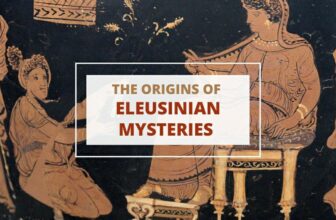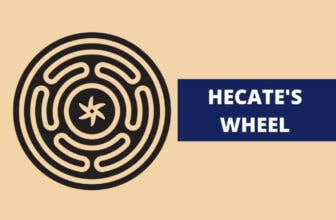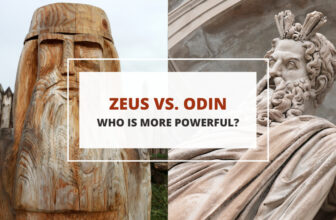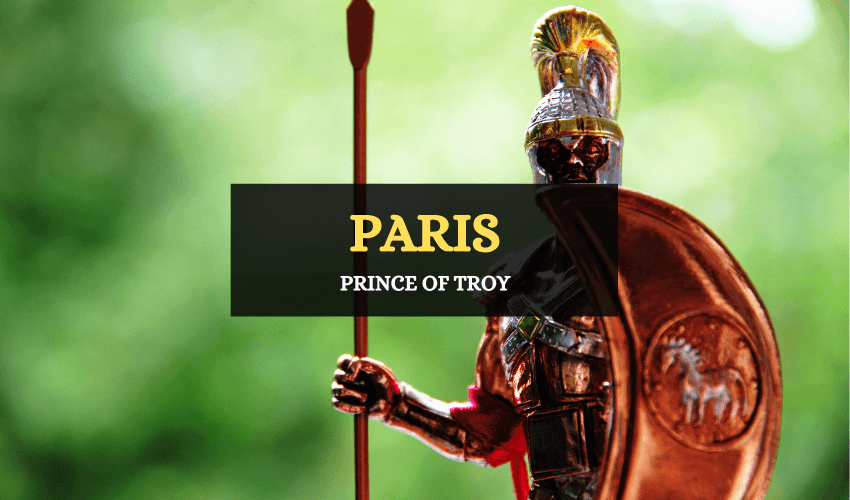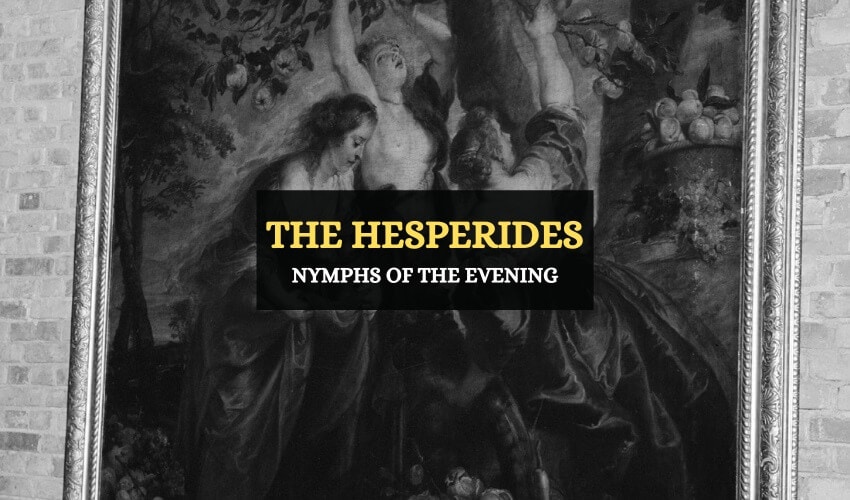
Table of Contents
In Greek mythology, there were several groups of nymphs in charge of different parts of the world and its nature. The Hesperides were the nymphs of the evening, and they were also the protectors of the famous golden apples. Known as the Daughters of the Evening, the Hesperides played a minor but important role in Greek myth. Let’s take a closer look.
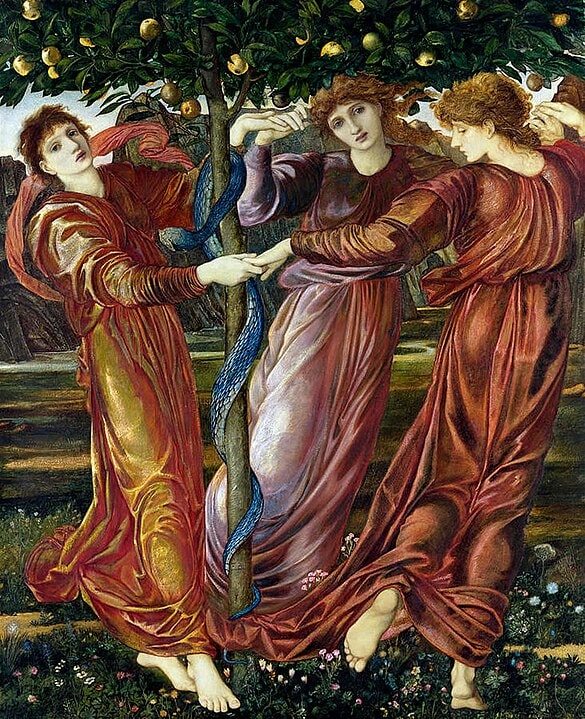
Who Were the Hesperides?
Depending on the myths, the number and name of the Hesperides vary. However, there are three in their most famous depictions and most artworks. The three nymphs were Aegle, Erytheia, and Hesperia, and they were the nymphs of the evenings, sunset, and sunset light. In some myths, they were the daughters of Erebus, the god of the darkness, and Nyx, the primordial deity of the night. In other stories, it was Nyx alone who gave birth to the Hesperides.
The nymphs dwelt in the garden of the Hesperides, the place in which the tree of the golden apples grew. This place was either in northern Africa or Arcadia. Most of the paintings of the Hesperides show them as beautiful maidens in a teeming garden; in some cases, the guardian Dragon Ladon is also present.
The Garden of the Hesperides
Gaia, the goddess of the earth, gave Hera a tree of golden apples as a wedding gift when she married Zeus, the god of thunder. The tree was placed in the garden of the Hesperides for the nymphs to guard. Hera decided to also put the dragon Ladon, the offspring of the sea monsters Phorcys and Ceto, as the guardian of the golden apples. Due to this, people believe that the garden first existed in Arcadia, where there is a river called Ladon.
In some myths, the garden had more than just the tree of the golden apples since it was the place in which the gods kept many of their exceptional articles. This precious content was also one of the reasons why the Hesperides were not the only guardians.
The myths never revealed the exact location of the garden for its protection but there are several stories involving this place and the apples. Those who wanted to steal an apple first had to discover its location and then manage to go past the dragon and the Hesperides. The apples were responsible for the beautiful color of the sunsets. In some accounts, the apples would give immortality to anyone who ate one. For this, heroes and kings coveted the apples of the Hesperides.
The Hesperides and Perseus
The great Greek hero Perseus visited the garden, and the Hesperides gave him several items to help the hero in one of his feats. The nymphs gave him Hades’ invisibility helmet, Athena’s shield, and Hermes’ winged sandals. Perseus received the help of the gods, and after the Hesperides gave him their godly tools, he was able to kill Medusa.
The Hesperides and Heracles
As one of his 12 Labors, Heracles had to steal a golden apple from the garden of the Hesperides. The myths vary considerably as to how he did this feat. Heracles found Atlas holding the skies and asked him for help in finding the garden. Atlas instructed him on the location of the garden. In some stories, Heracles took the titan’s place under the sky while Atlas went to the garden of the Hesperides to fetch the fruit for him.
In other accounts, Heracles went there and killed the dragon Ladon to take the golden apple. There are also depictions of Heracles dining with the Hesperides and convincing them to give him the golden apple.
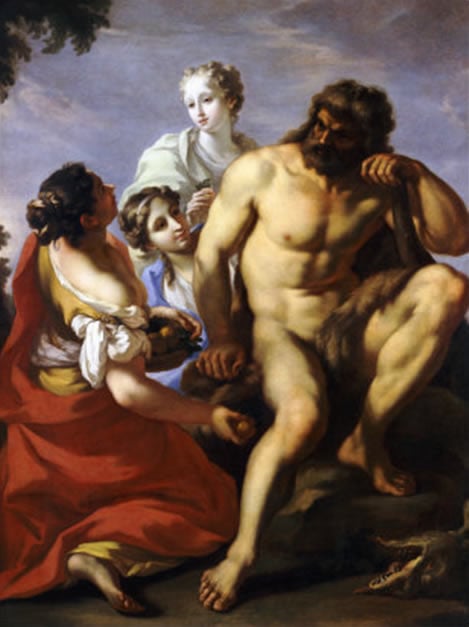
The Hesperides and Eris
One of the events that led to the Trojan War was the judgment of Paris which began because of a golden apple taken from the Hesperides. At the wedding of Thetis and Peleus, Eris, the goddess of discord, showed up to cause problems after the other gods did not invite her to the wedding. Eris brought with her a golden apple from the garden of the Hesperides. She said that the fruit was for the most beautiful or the fairest goddess. Aphrodite, Athena, and Hera began fighting about it and requested Zeus to choose a winner.
Since he did not want to intervene, Zeus appointed Prince Paris of Troy to be the judge of the contest. After Aphrodite offered him the most beautiful woman on earth as a gift if he chose her, the prince selected her as the winner. Since Helen of Sparta was the most beautiful woman on earth, Paris took her with Aphrodite’s blessing and the war of Troy commenced. Thus, the Hesperides and their golden apples were at the heart of the Trojan War.
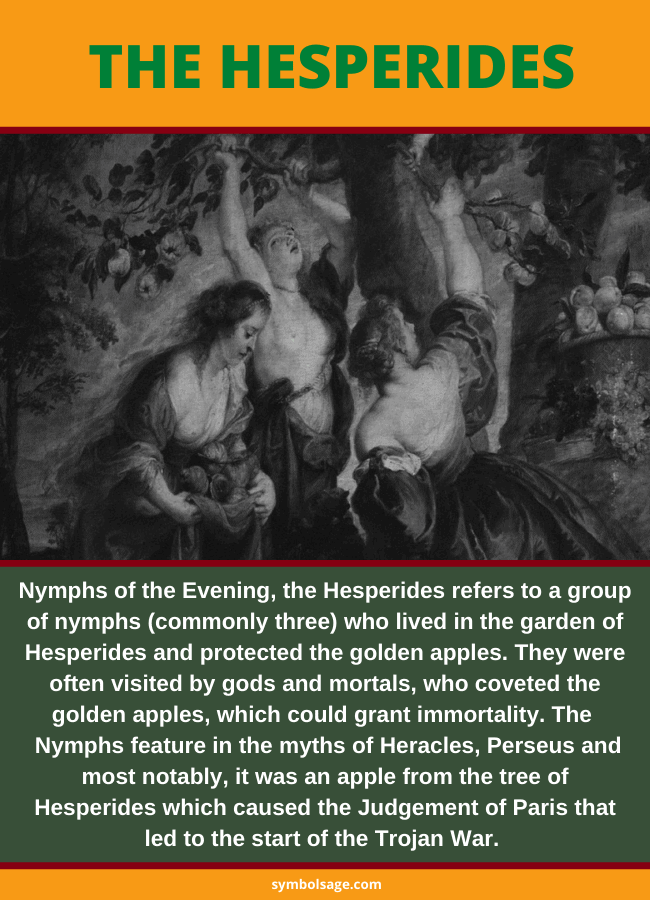
The Offspring of the Hesperides
According to the myths, one of the Hesperides, Erytheia, was the mother of Eurytion. Eurytion was the herdsman of the giant Geryon, and they lived on the Island of Erytheia, near the garden of the Hesperides. In one of his 12 labors, Heracles killed Eurytion when fetching Geryion’s cattle.
Hesperides Facts
The Hesperides’ parents are Nyx and Erebus.
Yes, the Hesperides had several siblings including Thanatos, Moirai, Hypnos and Nemesis.
They live in the Garden Hesperides.
The Hesperides are nymphs of the evening.
In Brief
The Hesperides were an essential part of several myths. Due to the highly coveted apples of their garden, the goddesses were at the heart of several myths, most notably the start of the Trojan War. Their garden was an exclusive sanctuary that held many treasures. It was a special place for the gods, and the Hesperides, as its guardians, played a central role in it.




